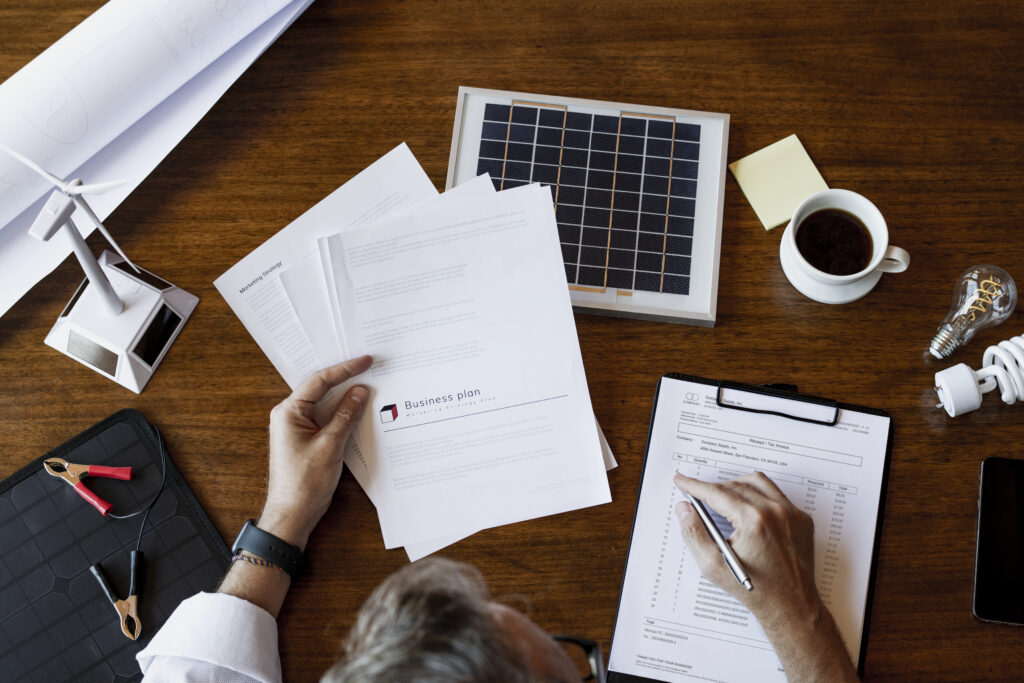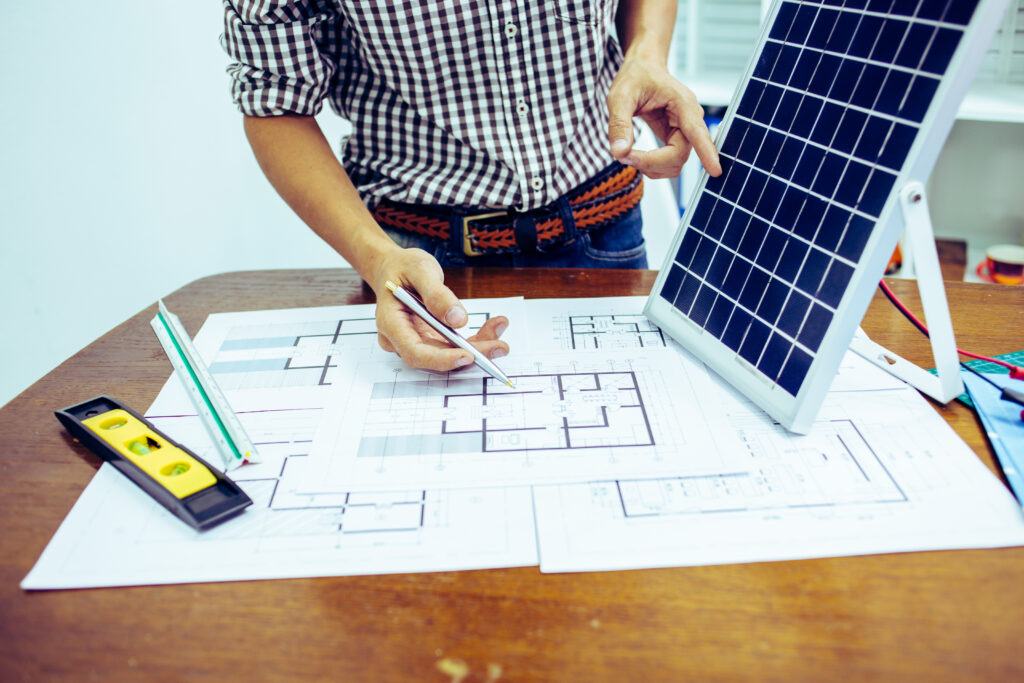Going solar is exciting, but the legal jargon can be intimidating. Don’t worry – we’ll break down the basics in plain English so you can go solar with confidence.
Introduction: Shedding Light on Solar Legalities
If you’ve browsed forums like Reddit or Quora, you’ve probably seen questions flying about solar leases, mysterious “UCC-1 filings,” contract fine print, and even liens on homes. Many homeowners (and business owners) are intrigued by solar energy savings but get nervous about the legal side of solar. Will the solar company put a lien on my house? What happens if I sell my home? What should I watch out for in the contract? These are common concerns – and myths abound.
In this article, we’ll clear up the confusion around solar ownership agreements. We’ll explain how solar leases and power purchase agreements (PPAs) work, what a UCC-1 filing really is (and why it’s usually nothing to panic about), and how to spot red flags in solar contracts before you sign. The goal is to give you practical, jargon-free guidance so you understand your rights and avoid surprises. And if you ever feel in over your head, we’ll point you to resources (like Guardian Core Solutions) that can connect you with vetted legal and solar professionals for help. Let’s get started!
Understanding Solar Leases and PPAs
Solar leases and PPAs 101: In a solar lease or a power purchase agreement (PPA), a solar company installs panels on your property, but you don’t own the equipment. It’s a bit like leasing a car or renting your rooftop to the solar provider. The company owns and maintains the solar panels, and you pay them for the solar energy you use. With a solar lease, you typically pay a fixed monthly rate to use the solar power produced (replacing part of your electric bill). With a PPA, instead of a flat fee, you pay per kilowatt-hour of electricity the panels generate – essentially buying the power from the solar company at an agreed rate. Both options are forms of “third-party ownership” of the system.
What’s in it for you? Solar leases and PPAs often boast $0 down or no upfront cost installations. This can be great if you want immediate savings on your electric bill without paying $15k–$30k upfront for a solar system. You also avoid the hassle of system upkeep – the company takes care of monitoring, maintenance, and repairs in most case. In other words, you get the benefits of solar (lower electricity bills, using clean energy) without the responsibilities of owning the equipment.
What’s the catch? The trade-off is long-term commitment and fewer financial benefits down the road. Solar lease contracts commonly last 20 to 25 years. That’s a long time – closer to a marriage than a fling! You’ll want to be very comfortable with the payment terms for the duration. Moreover, since you don’t own the system, you don’t get valuable incentives like the federal solar tax credit or many rebates – those go to the solar company that owns the panels. This means your overall savings are smaller than if you bought panels outright or with a loan. In fact, the largest disadvantages of leasing are that you miss out on the 30% federal tax credit, your long-term savings are lower, and selling a home with leased panels can be tricky.
Let’s bust a common myth: “Free solar panels from the government.” You might see ads or hear sales pitches claiming “no cost solar”. What they usually mean is a lease/PPA arrangement – you pay nothing upfront, but you sign a contract to buy power or rent the system for decades. It’s not a charitable government program giving you free panels; it’s a private contract. You will be paying for the power one way or another. The good news is that the monthly solar payment is often designed to be a bit less than your normal utility bill, so you do save money each month. Just be aware it’s not “free” – you’re essentially swapping your utility bill for a solar bill.
Example: Say your average electric bill is $150. A lease might charge you about $120 a month for the solar, reducing your utility bill to near $0 – netting maybe $30 in monthly savings. Over time those savings can add up, but they’ll usually be modest compared to owning a system outright, where after payoff you’d get virtually free power. Think of leasing as renting your electricity at a discount.
End-of-term options: What happens after 20–25 years? Typically, you have options: you might renew the lease, have the company remove the panels, or sometimes buy the system at a depreciated value. Make sure your contract spells out what happens at the end of the term. If you can purchase the system, find out how that price will be determined. If removal is an option, confirm whether there’s any fee for taking the panels off at the end of the lease.
What Is a UCC-1 Filing (and Should You Worry)?
So you’ve heard that going solar might put a lien on your property. Yikes, right? 😨 Let’s clarify this because it’s a source of many myths and fears. When people talk about liens in the solar context, they’re usually referring to a UCC-1 filing.
What is a UCC-1? “UCC-1” stands for Uniform Commercial Code financing statement. It’s a legal form a creditor files to publicly declare an interest in personal property as collateral for a loan or obligation. In plainer terms, it’s a notice that “Hey, this solar equipment is financed or leased, and the lender/solar company has a claim on it until the debt is paid.” When you lease solar panels (or take out a solar loan), the provider often files a UCC-1 statement to secure their interest in the panels on your roof. It’s standard practice in solar financing – a formality to make sure the company can reclaim the panels if you stop paying.
Is it a lien on my house? Not in the traditional sense. A UCC-1 filing is usually a lien on the solar equipment, not on your home’s title or equity. One solar lender describes it as giving notice of a lender’s lien on the solar equipment, ensuring they can repossess the panels if you default. In other words, it’s more like a lien on your panels – similar to how a bank holds the title to your car until you pay off a car loan – rather than a second mortgage on your house. Your home itself isn’t collateral for the solar lease/loan; the panels and related equipment are.
However – and this is where confusion arises – because solar panels are attached to your house, the UCC-1 filing often gets recorded in the property records (sometimes as a “fixture filing”). On a title report it may show up as an encumbrance “attached to real estate,” which makes it look like a lien on the property at first glance. As one law firm explains, a UCC lien on solar panels can appear to be a lien on the entire property, creating a “cloud” on the title that can spook uninformed buyers or lenders. In reality, it does not affect your ownership of the home – only the panels listed as collateral. But if a bank’s underwriter or a buyer’s attorney isn’t familiar with solar, they might see that UCC-1 and get concerned. This is why UCC filings often need to be addressed during home sales or refinancing.
How does a UCC-1 affect selling or refinancing? When you go to sell your home (or refinance your mortgage), any lien or UCC filing will come up in a title search. At that point, you (the seller) will need to resolve the solar agreement as part of the transaction. Usually, there are a few ways to handle it:
- Transfer the lease/loan to the buyer: The buyer agrees to take over the solar payments. The solar company will then work with you to transfer the contract and will likely temporarily lift the UCC-1 filing so the property sale can proceed (then re-file it under the new owner). Not every buyer will want to assume a solar lease, so this requires finding an interested (and credit-qualified) buyer. In fact, some lenders (especially government-backed loans like FHA) won’t approve a mortgage if there’s a leased solar system that the buyer must take on. (More on this in the next section.)
- Pay off or buy out the system: The seller can choose to pay off the remaining lease payments or loan balance, which often allows the UCC filing to be removed entirely. For a lease, this might mean buying the panels from the solar company. Many leases have a buyout option (sometimes only after a certain number of years). If you pre-pay or buy the system, the panels become yours and the UCC-1 lien can be terminated. Sellers often do this to make the home sale smoother – the house can then be sold with owned panels (a plus for some buyers). Keep in mind, buying out a lease can be a chunk of money (often tens of thousands of dollars), so it’s something to weigh when you sign the lease in the first place.
- Have the solar company remove the panels: This is less common, but in some cases, if neither transfer nor payoff is feasible, you might negotiate to have the system removed (terminating the contract, possibly with penalties). This would also remove the lien. But you’d lose the solar setup and likely owe an early termination fee, so it’s kind of a last resort.
The main point: a UCC-1 filing isn’t a reason to panic, but you do need to remember it’s there. It’s a legal to-do item for later. Many homeowners have successfully sold homes with leased solar; it just takes a bit of extra paperwork. Plan ahead and involve the solar company early when selling – they often have a department to help with transfers or UCC removals. As long as the lease or loan is handled (through transfer or payoff), the UCC-1 can be released and will not block your sale. It may cause some delays if not dealt with, because everyone involved (buyer, seller, realtors, title company, lenders) needs clarity on what that lien is. But virtually every solar contract has language on how to remove or transfer the UCC filing.
Also, if you refinance your mortgage, the mortgage lender might require the UCC-1 be subordinated or temporarily lifted. Solar companies like Sunrun, Tesla, etc., routinely handle these requests – they remove the lien during refinancing and re-file it after, so the refi bank’s lien (your new mortgage) isn’t competing with the solar lien. Always inform your solar provider if you’re refinancing; they’ll coordinate with the lender.
Finally, let’s dispel another fear: “If I default on my solar payments, can the solar company take my house?” No – they can’t take your house under a solar lease/loan scenario. The UCC-1 gives them the right to repossess the solar panels (and related equipment) if you stop paying, but it does not give them foreclosure rights on your real estate. They’re not a mortgage lender. Worst case, you’d owe money or get sent to collections, and they’d come remove the panels from the roof. Your home itself remains yours. In fact, UCC filings legally protect you and the solar company by clearly separating the ownership of the panels from the house: if your house was foreclosed by your bank, the solar company could reclaim its panels (since they filed a UCC-1 stating those are theirs). Conversely, if you sell the home, the UCC-1 makes it clear to the buyer and their lender that the panels aren’t part of the property sale until the lien is resolved. So think of a UCC-1 as a way to keep everyone’s stuff sorted out – it’s notice to the world that “these panels belong to someone until paid off.”
Bottom line: Don’t be alarmed if your solar contract mentions a “UCC-1 financing statement” or lien; almost all leases and solar loans have them. Just file it under “things to handle later” and make sure you understand the process for removing it when the time comes. If anything in the UCC filing (like what’s listed as collateral) seems fishy or overly broad, ask questions – it should generally list the solar equipment only. And keep records when you finish paying off the system so you can ensure the lien gets removed. It’s not automatic in some states; you may have to request a lien release. A quick call to a real estate attorney or a company like Guardian Core Solutions can help if you’re unsure how to clear a UCC-1 off your title when you’ve fulfilled your solar obligations.
Sources:
- Pender & Coward Law Firm – What to Know about UCC Liens before Going Solar
- SolarReviews – Expert Guide to Solar Leasing: Pros, Cons, and Red Flags
- Sprk Home – Top 4 Problems with Solar Leases
- Wynn & Wynn, P.C. – Disadvantages of Leasing Solar Panels
- WeSERV Realtor Association – FHA Loans and Leased Solar Systems
- Massachusetts Attorney General – Advice to Homeowners Considering Solar
- AES Renew – Purpose and Benefits of UCC-1 Filings in Solar Projects
Solar Leasing Guide: Pros, Cons, & Red Flags — SolarReviews
What to Know about UCC Liens before Going Solar | Pender & Coward
UCC-1 Filings in Solar Projects: Purpose and Benefits – Advanced Energy Systems
Energy Efficient Mortgages, FHA buyers and Leased Solar Systems – Government Affairs
THE DISADVANTAGES OF LEASING SOLAR PANELS – Wynn & Wynn
PPA (Power Purchase Agreement) and Solar Leases
AG Healey Offers Advice To Homeowners Considering Solar Panel Installations | Mass.gov




